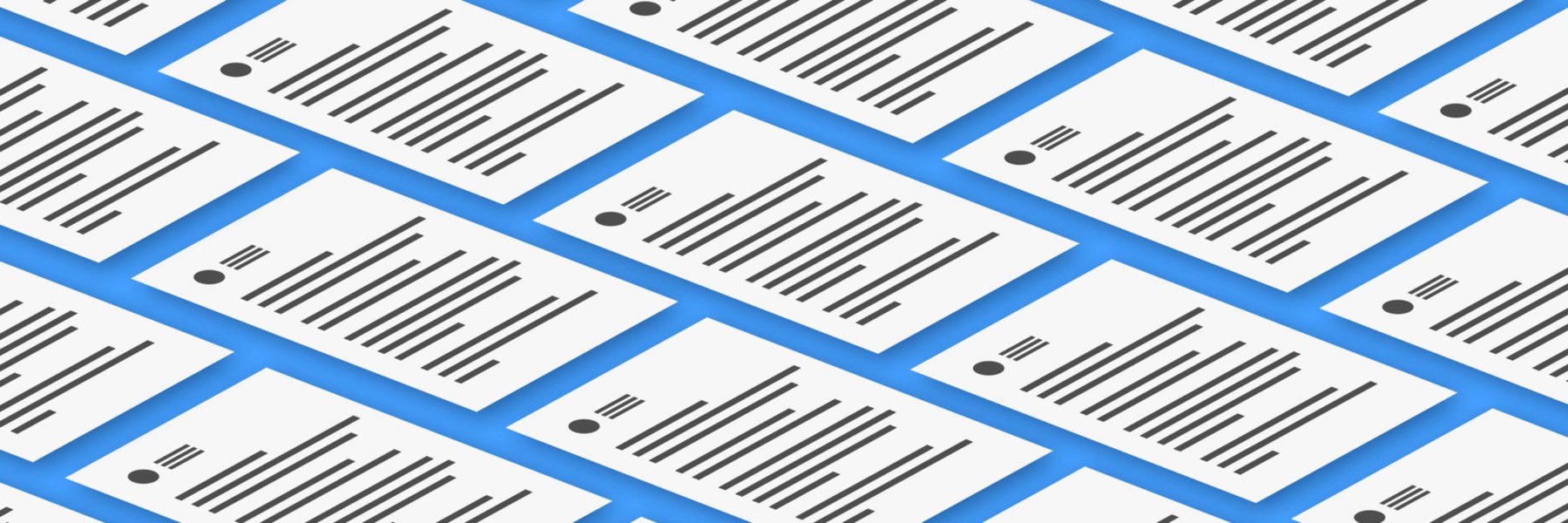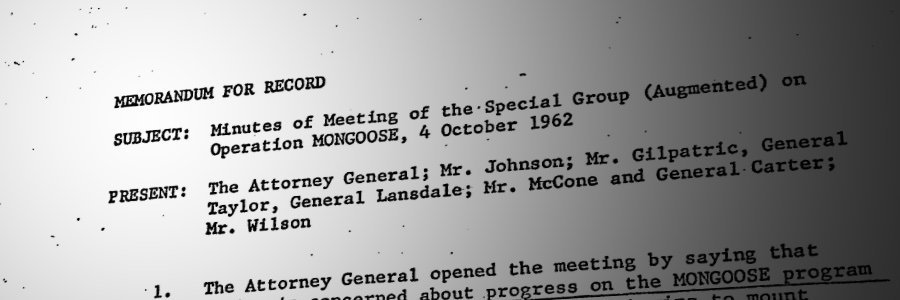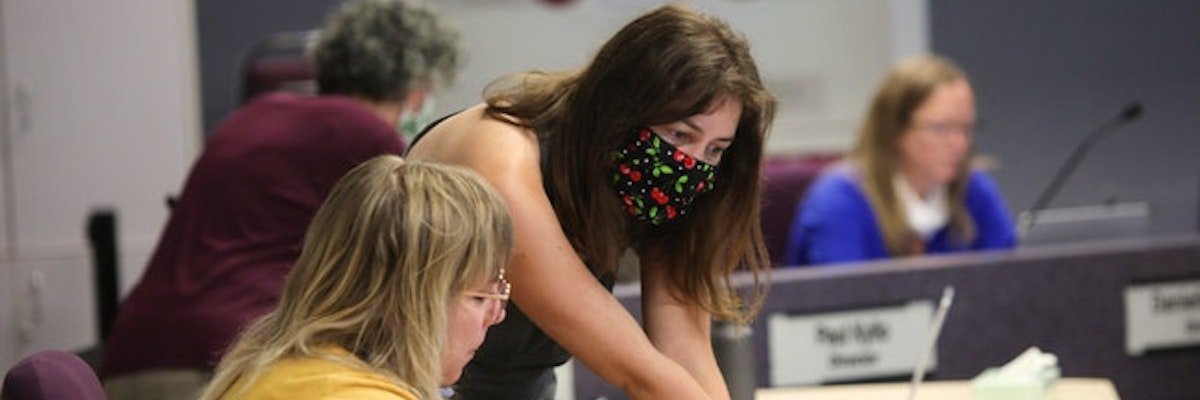Laura Rótolo is a lawyer and advocate at the Massachusetts chapter of the American Civil Liberties Union. Her group filed suit last week against the Federal Bureau of Investigation and the U.S. Attorney’s office over records related to the Massachusetts Joint Terrorism Task Force, the conduct of the Boston FBI field office, and the Boston Marathon bombing. For this week’s Requester’s Voice, we caught up with Rótolo to discuss the ACLU’s complaint.
Give us some background — why did you request these documents in the first place?
We’ve been concerned about the Joint Terrorism Task Force [JTTF] for quite some time. They’ve been around for 30 years, and after 9/11 we’ve seen them around a lot more.
But we only hear about them anecdotally. We hear when something happens. We know that they were investigating the Boston Marathon bombing, but nobody knows how they’re structured, or who is in charge.
We did a request five or six years ago on the same sort of issue about the JTTF and got nothing back. So we wanted to try it again.
Last year with the Todashev shooting, it sort of became clearer that we don’t really know who’s in charge. We’re not sure that the agents that the state troopers were with in Florida were part of the JTTF, but it’s most likely that they were because that’s sort of how they work together. Martha Coakley said she couldn’t investigate because it wasn’t in her jurisdiction (because the shooting happened in Florida), but they were three Massachusetts agents.
So when things go wrong, we hear about the JTTF. And then we realize nobody knows how they’re structured, how they function, or who they answer to.
The Todashev shooting cleared it up in our minds that we really need get some key documents. And we’re not asking for anything that’s law enforcement sensitive or that would reveal law enforcement strategy. We just want to know the basics.
Have you gotten any response from the FBI or the U.S. Attorney?
We haven’t got any documents back yet. The U.S. Attorney’s Office hasn’t responded at all. I actually had to call them to make sure they received the request.
The FBI agreed to put us on the expedited processing track. We made an argument that the documents were necessary — urgently needed — to inform the public. They agreed and put us on the expedited track, but they still haven’t turned over any documents.
In fact, they actually denied the Todashev part of the request. They said it was an ongoing investigation.
So that’s where we are.
We had to go into court, and force them to turn over some of the documents. We hope to shed some light on this very secretive way that state and local officials collaborate.
So in the case of the JTTF, you have a name and that’s about it. Where do you start when you’re staring at a blank wall?
We base it on the things that we see from other agencies and other task forces. What are their protocols? Numbers. Memorandums of understanding [MOUs]. There’s got to be MOUs about all the agencies that participate.
But then with the Todashev stuff we literally asked for “anything related to Ibragim Todashev,” and we’ll see what comes back.
Not everything about him is going to be exempt under law enforcement privilege – they’ve got to have stuff about the investigation of his death which would not be related to any ongoing investigation. He’s dead. The investigation happened, and the Department of Justice said in their report that there’s going to be no further investigation into the FBI’s involvement and culpability. So they’ve got to be able to release some of that.
And they have a duty to segregate the parts that can be released.
We’re seeing more and more wholesale rejections from agencies, basically daring requesters to sue and setting up a precedent for continued lawsuits for anyone who hopes to get back documents. What’s the process of filing suit and getting documents?
Especially with the FBI.
They’ve said in filings that when you ask for something about an individual, they will look through their indices to see if there’s a listing — an electronic index card — with that name on it, but they won’t crosscheck with other databases until you litigate. They’ve gone on the record and said that.
So we know that the FBI is just impenetrable unless you sue them. And it’s a real problem for people who aren’t able to sue. Even with us, we sort of have to pick our battles. We can’t go into court every single time we want something from the FBI.
So why are these documents you’ve requested a priority?
We just think that there’s a real possibility for abuse here. When you’ve got these nebulous task forces and nobody knows who’s in charge, there’s a real potential for abuse. The JTTF has a great deal of power ever since the standards for opening an investigation were relaxed 2008.
They’ve done 1,000 assessments out of Massachusetts. They’ve said that on the record in response to a question. What happened to those assessments? What happens to the data they’re gathering on innocent people, and are they really effective?
I think the Boston Marathon bombing just really put it into focus and compelled us to go into court on this one.
What are the options for individuals who are not the ACLU when they run into similar situations?
That’s a big question. Even when Obama took office, he had this renewed push for openness. He sent a memo to all agencies about FOIA about this presumption of how everything should be public and a renewed commitment to accountability and transparency. But frankly we haven’t seen it, especially from agencies like the FBI.
So I don’t know if it’s legislative reform, whether we need a better FOIA, or whether we need more resources. I mean we’ve seen agencies lie in court about FOIA, saying they don’t have documents when they do.
It’s a real problem for the average person who doesn’t know how to navigate the system and who gets turned down.
We’re behind other countries who have way better policies. I think it’s Scotland that has an ombudsperson who is in charge of freedom of information and who has subpoena power over other agencies to ensure that they are compliant. We don’t have anything close to that.
And don’t even get me started on the state agencies.
How does the ACLU go about suing for documents?
On this case, we’re very lucky to have a law firm that is working pro bono for us. They helped us draft the complaint. We’re a small organization, so we do rely on law firms a lot.
Care to make any predictions about the outcome?
From my experience and from following other FOIA cases and the experience of our national office, agencies do tend to respond more quickly when you go into court.
So we’re hoping that we’ll get a U.S. Attorney assigned to the case quickly and that we’ll be able to come up with a schedule for release of the information.
But then it’s probably going to get complicated with the Todashev issue. If the FBI continues to assert that it’s exempt from disclosure, then we’re going to have to litigate that.
And there will be briefings and arguments and that’s going to take a while and the judge will have to decide.
But we’re hoping that some of the other documents should just be a matter of the agency being compelled to release them, and hopefully they won’t argue a lot about whether the material is exempt or not.
Just before the ACLU Massachusetts filing, MuckRock Projects Editor Shawn Musgrave received a rejection letter from the FBI stating that his request for the list of agencies participating in the JTTF was exempt from disclosure, citing privacy and a risk of circumvention of the law resulting from agency techniques and procedures being revealed.
Image via ACLU.org




